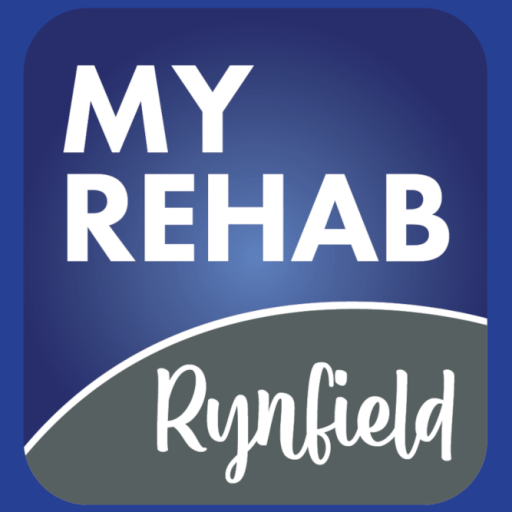Addiction Assessment
Addiction assessment is your first step toward understanding and overcoming addiction. It evaluates your substance use history, behaviors, and triggers, helping identify underlying issues that could be contributing to your struggles. Through standardized tools and interviews, you’ll gain insights into how addiction impacts your life, enabling tailored treatment plans that cater to your unique needs. Embracing this process not only empowers you but also sets the stage for meaningful change. There’s more to explore about how this can enhance your recovery journey.
What Is Addiction Assessment?
Addiction assessment is a crucial step in understanding the impact of substance use or behavioral issues on an individual’s life. It involves a thorough evaluation of your patterns, behaviors, and the substances or activities involved. During this process, professionals ask questions about your history, triggers, and how these issues affect your daily functioning. They’ll use standardized tools and interviews to gather information, helping you identify the severity and nature of your challenges. This assessment isn’t just about diagnosing; it’s about creating a personalized plan for recovery. By engaging in this process, you can gain insight into your struggles and start the journey toward healthier choices and improved well-being. Understanding your situation is the first step to meaningful change. Additionally, the assessment process is typically conducted by a multidisciplinary team of specialists who work collaboratively to ensure comprehensive care.
The Importance of Addiction Assessment
Understanding the nuances of addiction assessment can considerably impact your path to recovery. It’s not just about identifying the problem; it’s about understanding the unique aspects of your situation. A thorough assessment helps reveal the underlying issues contributing to your addiction, whether they’re emotional, psychological, or environmental. By recognizing these factors, you can tailor your treatment plan to address your specific needs. This personalized approach increases your chances of successful recovery. Furthermore, a detailed assessment can also highlight co-occurring disorders, ensuring you receive holistic care. Ultimately, taking the time for an in-depth assessment lays a strong foundation, empowering you to make informed decisions and fostering a deeper understanding of your journey toward healing. Additionally, the commitment to evidence-based treatments ensures that your recovery process is grounded in scientifically validated methods.
Key Components of an Effective Assessment
What makes an addiction assessment truly effective? First, it’s important to establish trust with the individual. You need a safe space where they feel comfortable sharing personal experiences. Next, thorough information gathering is necessary; you should explore their substance use history, mental health status, and any co-occurring disorders. Active listening plays a critical role in understanding their unique situation and needs. Additionally, consider the cultural and social context surrounding their addiction, as this can greatly influence their behavior and recovery. Finally, confirm that the assessment is ongoing, adapting to any changes in the individual’s condition. By focusing on these key components, you create a solid foundation for identifying the appropriate treatment and support strategies.
Tools and Methods Used in Addiction Assessment
When evaluating someone for substance use issues, utilizing the right tools and methods is essential for gathering accurate information. Standardized questionnaires, like the Addiction Severity Index (ASI) or the Substance Abuse Subtle Screening Inventory (SASSI), can help identify the severity and nature of the problem. You might also consider biological tests, such as urine or blood tests, to confirm substance use. Observational methods, including behavioral assessments, provide insight into the person’s habits and triggers. Additionally, self-report measures allow individuals to express their experiences and feelings regarding substance use. Combining these tools gives a thorough view of the individual’s situation, enabling tailored treatment plans that address their unique needs effectively.
The Role of Interviews in the Assessment Process
Interviews play an essential role in the addiction assessment process, as they allow professionals to gather nuanced information directly from individuals. During these conversations, you’ll have the chance to share your experiences, struggles, and motivations. This personal interaction helps professionals understand your unique situation and tailor their recommendations accordingly.
The interviewer will ask open-ended questions to encourage you to express your thoughts and feelings openly. This dialogue can reveal underlying issues and patterns that standardized assessments might miss. Additionally, interviews foster a trusting relationship, making you feel more comfortable discussing sensitive topics. Your insights during these sessions are invaluable, guiding treatment planning and improving the chances of recovery. Ultimately, these interviews help create a holistic picture of your needs and goals.
Understanding Co-occurring Disorders
While maneuvering through the complexities of addiction, it is vital to recognize that many individuals also experience co-occurring disorders—mental health conditions that exist alongside substance use issues. These disorders can include anxiety, depression, PTSD, or bipolar disorder, which complicate treatment and recovery. When you face addiction, these mental health issues often intensify cravings and hinder your ability to cope. It is important to address both aspects simultaneously for effective recovery. Ignoring one can lead to relapse or worsening symptoms of the other. Understanding this connection helps you seek the appropriate support, ensuring that your treatment plan encompasses both addiction and mental health. By doing so, you’ll improve your chances of achieving lasting recovery and a healthier, more balanced life.
Interpreting Assessment Results
Interpreting assessment results is a crucial step in understanding your unique struggle with addiction and any co-occurring disorders. These results provide insights into your habits, triggers, and the impact of substances on your life. By analyzing the data, you can identify patterns in your behavior and emotional responses. It’s important to recognize which areas need the most attention, whether it’s substance use, mental health, or social support. Understanding this information empowers you to engage in meaningful conversations with professionals and helps you advocate for your needs. Remember, these results aren’t just numbers; they reflect your experiences and guide your path toward recovery. Embrace this process, and use your insights to inform your next steps.
Creating Customized Treatment Plans
Creating a customized treatment plan is essential for addressing your specific needs in recovery. This plan should be tailored to your unique circumstances, including your addiction history, mental health status, and personal goals. Start by discussing your experiences and preferences with your healthcare provider. They can help identify the most effective therapies and interventions for you, whether that’s individual counseling, group therapy, or medication-assisted treatment. Regularly reassess your progress and adjust the plan as needed to guarantee it remains effective. Engaging in your treatment process not only empowers you but also enhances your chances of long-term success. Remember, a personalized approach can make all the difference in your journey to recovery.
Overcoming Barriers to Assessment
When you seek an addiction assessment, you might encounter barriers that can complicate the process. These can include stigma, fear of judgment, or even financial constraints. To overcome these obstacles, it’s essential to prioritize your well-being and seek support from trusted friends or family. Finding a compassionate professional who understands addiction can also make a huge difference. Don’t hesitate to ask about sliding scale fees or insurance coverage to alleviate financial stress. Additionally, educating yourself about the assessment process can ease anxiety. Remember, taking the first step toward assessment is a sign of strength. Stay focused on your goal of recovery, and don’t let barriers prevent you from accessing the help you deserve.
The Impact of Early Assessment on Recovery Outcomes
Early assessment can greatly influence your recovery outcomes, as it allows for timely intervention and tailored treatment plans. When you undergo an early evaluation, professionals can identify your specific needs and challenges right away. This means you’re not wasting time on ineffective approaches. Instead, you’ll receive targeted strategies that fit your situation, improving your chances of lasting recovery.
Moreover, early assessment helps establish a strong support network, connecting you with resources and people who understand your journey. It also enables you to set realistic goals and track your progress effectively. By addressing issues early, you’re more likely to stay motivated and engaged in your recovery, ultimately leading to a healthier, more fulfilling life. Don’t underestimate the power of starting strong.
Frequently Asked Questions
What Qualifications Should an Assessor Have for Addiction Evaluations?
When evaluating qualifications, you’ll want assessors with relevant degrees, certifications, and experience in mental health. They should possess strong interpersonal skills, empathy, and a deep understanding of addiction’s complexities to guarantee effective evaluations.
How Long Does the Addiction Assessment Process Typically Take?
The addiction assessment process typically takes about one to two hours. You’ll engage in an interview, answer questionnaires, and discuss your history. This thorough approach guarantees the assessor understands your situation and needs effectively.
Are Assessments Confidential, and How Is Privacy Maintained?
Yes, assessments are confidential. Your privacy’s maintained through secure data storage, limited access to your information, and adherence to strict regulations. You can trust that your personal details will remain protected throughout the process.
Can Addiction Assessments Be Conducted Online or Remotely?
Yes, you can conduct assessments online or remotely. Many professionals offer virtual options, making it convenient for you. Just guarantee you’re using secure platforms to maintain confidentiality and privacy throughout the process.
What Happens if Someone Refuses to Participate in an Assessment?
If you refuse to participate in an assessment, it often leads to missed opportunities for help. Professionals might recommend alternative options, but your input’s essential for understanding and supporting your needs effectively.
Addiction assessment is essential for understanding an individual’s unique struggles and crafting effective treatment plans. By utilizing various tools and methods, along with interviews, you can gain valuable insights into your situation. Overcoming barriers to assessment can greatly enhance your recovery journey. Early and accurate assessment not only paves the way for tailored interventions but also improves your chances of successful recovery. Don’t underestimate the power of a thorough assessment in your healing process.

